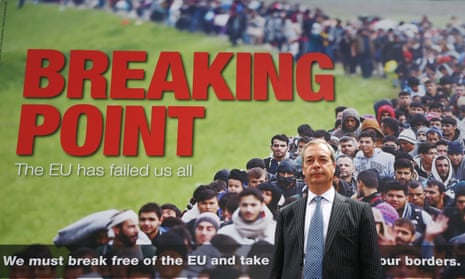This was not supposed to happen, according to almost all the politicians and pundits. Remain was going to win. From the Bank of England to the Church of England, our leaders all seemed to agreed on what the outcome ought to be.
But the people did not see it that way. By a clear million-plus majority Britain has voted to leave the European Union. What happens now?
Ever since I fell into a conversation with Daniel Hannan over lunch almost a quarter of a century ago, I have campaigned for this moment. I have been prepared to stand for election, change party and stand in a byelection to get us here. Yet I would be the first to point out that a very sizable minority – 48% – did not vote to leave the EU. Our first task has to be to reassure.
Yes, we are going to leave the EU. But we need to try to find a new consensus that brings as many of the 48% with us as possible. During the campaign, I listened to plenty of decent, honest remainers, making some sensible points that need to be accommodated.
Having spent the past 20-odd years arguing about the EU, let’s get this right so we do not spend the next 20 years bickering.
For most of the past two decades, commentators gleefully reported on Euroscepticism as if it were merely a disease that afflicted the Tory party. Many are now shocked to discover those that those beastly backbenchers speak for the country. Only now, therefore, is the commentariat beginning to familiarise itself with the intricacies of Vote Leave’s case.
The commentariat is playing catch-up. This does not mean that the leave side does not have a clear plan. Some serious people within the Vote Leave team have given some serious thought to the process of disengagement that will now follow.
It’s not only the media elite that have been caught off guard. This referendum campaign has brutally exposed how those who lead the established political parties in Westminster have more in common with each other than they do with the people they are supposed to represent.
How on earth did the party of Keir Hardie end up defending the role of unelected EU commissioners? How did a party that once stood up for the interests of working people join forces with a remain campaign bankrolled by Goldman Sachs?
“Remain rage” prevents some from seeing what has just happened. Some will be tempted to try to discount the result of Thursday vote. “The people were misled,” shout some on Twitter. “It was all about immigration,” others are insisting, as if concern about immigration is somehow not legitimate. Please do not make the mistake of dismissing the vote to leave the EU as nativism.
Nigel Farage’s “breaking point” posters were morally indefensible. Those Syrian refugees fleeing war had nothing to do with Britain’s borders. Far from winning support for Vote Leave, that poster handed the remain campaigners, keen to cast aspersions on the leave sides values and motives, ammunition. It cost us votes.
But Vote Leave prevailed precisely because we did not campaign as an extension of Ukip, but as an upbeat, optimistic insurgency for change.
Across the western world we are seeing the emergence of an anti-elite insurgency. What fuels it is not nostalgia, but new technology. The death of political deference is more a product of Netflix, and the expectation of control that comes with it, than of nativism. Britain will leave the EU. But our exit will be part of a wider process of change that is on the way.
For too long, small elites have sought to govern human social and economic affairs by grand design. The EU, with its grand currency project and regulations for everything, exemplifies such conceit. But this kind of gigantism is doomed.
For those on the left, and the patrician right, who are in the business of politics in order to tell the rest of us what to do, this truly is an existential challenge. Brexit is only part of it.
